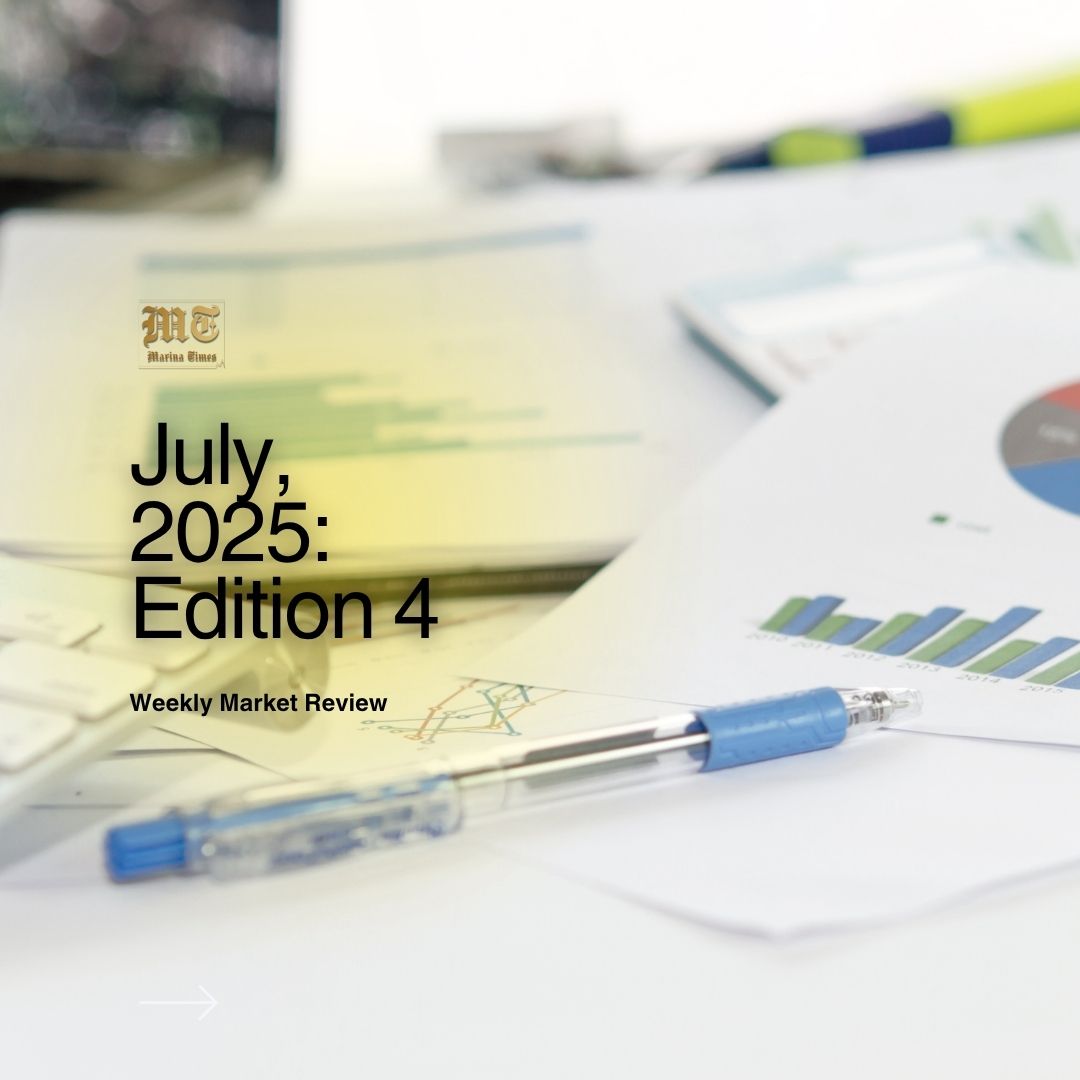

The July 23rd, 2025, Nigerian Treasury Bill (NTB) auction revealed powerful undercurrents shaping fixed-income sentiment, as investors grappled with shifting liquidity profiles, inflation expectations, and a cautious Central Bank. Stop rates across all tenors dropped notably, underscoring a strategic move by the Debt Management Office (DMO) to cut borrowing costs, even as real yields compress and investors begin to question market depth.
Beneath the surface, Nigeria’s rebased GDP and strengthening non-oil revenues point to structural evolution, yet inflationary persistence and policy rigidity pose as headwinds to sustainable capital market growth. In this climate of compressed yields and misaligned incentives, the fixed-income market teeters on a delicate balance. The need to recalibrate is urgent to reinforce the debt market’s role as a cornerstone of economic stability.
The Nigerian financial system swung sharply positive as the Money market opened with a surplus of over ₦1.35 trillion on Friday, marking a significant recovery from sustained deficits earlier in the week. Consequently, interbank rates remained elevated during the week, with the Overnight (O/N) rate peaking at 32.83% and the Open Repo Rate (OPR) at 32.50%. However, they eased to close at 27.00% and 26.50%, respectively. The Naira traded between a high of $/₦1,535.45 and a low of $/₦1,529.00 on Monday and closed at $/₦1,534.50 on Friday.
The Nigerian Treasury Bills (NTB) auction held on July 23, 2025, reflected a notable shift in market behaviour, with investor positioning influenced by liquidity dynamics, interest rate expectations, and macroeconomic sentiment. Demand varied sharply across tenors: the 91-day bill saw weak interest and under-subscription, while the 182-day bill attracted moderate demand. The 364-day tenor stood out as usual, recording a significant oversubscription of 5.37x, indicating strong institutional appetite to lock in decent yields ahead of potential policy easing.
The sustained decline in stop rates across all maturities remains the consequence DMOs drive to manage borrowing costs amid improved liquidity and inflation expectations. The sharpest cut was observed with the 91-day bill, dropping by 74bps, followed by the 182-day and 364-day tenors with 70bps and 42bps declines, respectively. These movements, along with the yield curve flattening, reflect growing market expectations of a dovish turn despite the CBN’s firm benchmark rate stance. The auction outcome serves as a clear signal for investors to reassess their portfolio duration and strategically position for anticipated macroeconomic shifts in the second half of 2025.
AUCTION DATE | 23-07-2025 | 23-07-2025 | 23-07-2025 |
ALLOTMENT DATE | 24-07-2025 | 24-07-2025 | 24-07-2025 |
MATURITY DATE | 23-10-2025 | 22-01-2026 | 23-07-2026 |
TENOR | 91-DAY | 182-DAY | 364-DAY |
OFFER (₦) | 50,000,000,000 | 20,000,000,000 | 220,000,000,000 |
SUBSCRIPTION (₦) | 41,670,776,000 | 24,663,927,000 | 609,322,671,000 |
ALLOTMENT (₦) | 13,107,093,000 | 5,104,794,000 | 271,788,113,000 |
RANGE OF BIDS (%) | 14.0000 – 17.5300 | 15.0000 – 18.5300 | 14.5300 – 20.0900 |
STOP RATES (%) | 15.0000 | 15.5000 | 15.8800 |
PREVIOUS STOP RATES (%) | 15.7400 | 16.2000 | 16.3000 |
Despite declining market rates and a more optimistic inflation outlook, the Central Bank of Nigeria (CBN) maintained a firm stance at the July 2025 MPC meeting, holding the Monetary Policy Rate at 27.5% and retaining high Cash Reserve Ratio (CRR) levels. The decision strongly reflects the CBNs cautious approach to monetary easing, aimed at anchoring inflationary expectations and supporting exchange rate stability. While the market appears to anticipate a dovish pivot, the CBN’s firm posture signals sustained liquidity squeezes and potential yield hikes if necessary to guard against inflation and protect the currency.
Nigeria’s recent GDP rebasing and June 2025 fiscal revenue data show evolving structural dynamics. The rebased GDP, now using 2019 as the base year, shows a 41.7% uplift in nominal output, reflecting broader sector inclusion and enhanced data coverage, particularly in the service and digital sectors. Despite this expansion, the modest real growth and persistent inflation underline lingering economic vulnerabilities. Current fiscal trends point to a diversification away from oil, as non-oil tax revenues rise. In parallel, GTCo’s dual listing on the London Stock Exchange marks a milestone for Nigeria’s capital markets, potentially boosting investor confidence, attracting foreign capital, and setting a precedent for global integration of domestic financial institutions.
The DMO and CBN are executing their mandates with technical precision, managing borrowing costs and anchoring inflation, respectively. Yet, this dual success is creating unintended consequences in Nigeria’s fixed-income market, where yields are compressing at an unsustainable pace. The DMO’s aggressive cost-saving measures, coupled with the CBN’s firm monetary policy, seem to be undermining effective price discovery and impairing investors’ ability to accurately assess risk.
In such an environment, the incentive structure for local investors becomes compromised, crowding out participation and dulling the signalling role of yields in a free market. This distortion is further compounded by the restricted access to OMO auctions for non-bank investors, the lack of a functional REPO market to boost liquidity, and the persistent disconnect between interest rates and exchange rate dynamics, all of which erode investor confidence and deepen systemic inefficiencies.
To restore balance, Nigeria must recalibrate its market architecture and policy implementation. Key reforms are expected to include developing a functional and liquid REPO market to facilitate short-term funding and deepen secondary market activity; expanding OMO access beyond banks to broaden the monetary transmission mechanism; and re-establish credible links between FX returns and interest rates to guide investor expectations. Additionally, the Federal Government may prioritize domestic resource mobilization over foreign borrowing through scalable incentives such as Public Private Partnerships (PPPs), infrastructure underwriting, and credit guarantees. These will not only reduce reliance on volatile FX-denominated debt but also build a more resilient, transparent, and investor-friendly fixed-income market where yields reflect true economic conditions, thereby preserving the market’s integrity and attractiveness.
Oil prices ended the week on a cautious rebound, with Brent crude closing at $69.36 per barrel and WTI at $66.21, supported by an additional 3.2 million-barrel draw in U.S. inventories and tightening diesel supplies. However, gains were tempered by concerns over potential oversupply, as OPEC+ prepares to ramp up production by 548,000 barrels/day in August, and speculation around relaxed U.S. sanctions on Venezuela reintroducing barrels to the market. Sluggish demand from China and Europe, combined with lingering geopolitical tensions, particularly the EU sanctions on Russian refined products, continued to weigh on market sentiments. Analysts warn that without a significant demand-side catalyst or a pause in supply growth, prices could drift toward the $60 range in the coming months.
As the local markets prepare for the upcoming FGN bond auction on Monday, July 28, 2025, with a total offering of N80bn (N20bn and 60bn for the 2029s and 2032s, respectively), speculators continue to gauge where the DMO’s comfort threshold for yields will lie. A potential signal of preparedness to issue in the form of higher allotments may not be too far. Oil prices are expected to slip further into the week as a consequence of the potential Venezuela supply boost. Cryptocurrencies are projected to breach new highs in the coming days as the bull momentum consolidates. The trajectory can, however, be easily tilted in the event of any escalation between Israel and Iran.
In the ever-watchful world of the Nigerian Primary Market Auction, July 23rd came with its own rhythm. Banks, institutions, and individuals arrived to buy treasury bills.
The world is no stranger to the demands and cautions, but it seems the rhythm changed this time.
The 91-day bill stood on its own; just a little lip service was paid to it, a few glances here and there, but no big demand on the table. It seems their eyes were elsewhere, looking for a better return on their investment.
They also gave the 182-day paper a few nods, a brief chat, and minor attention, but nothing substantial to get noticed.
As soon as they stopped by the 364-day table, the energy shifted. Buyers swarmed it, eyes were locked in, offers scribbled, and demand surged to 5 times the offer volume. What caused the rush? Perhaps it was the quiet whisper in the market, rumours of falling interest rates, and a more favourable outlook. If true, getting it Now is worth the investment…
The CBN remained silent, watching, standing tall, keeping the rates steady, like a god watching, while we whisper secrets about the future.
The whispers says, better to invest in the long term, possible interest rates, and better inflation numbers. And through it all, the Naira quietly nods, aware of the currents and quiet turning tides.
By: Sandra A. Aghaizu